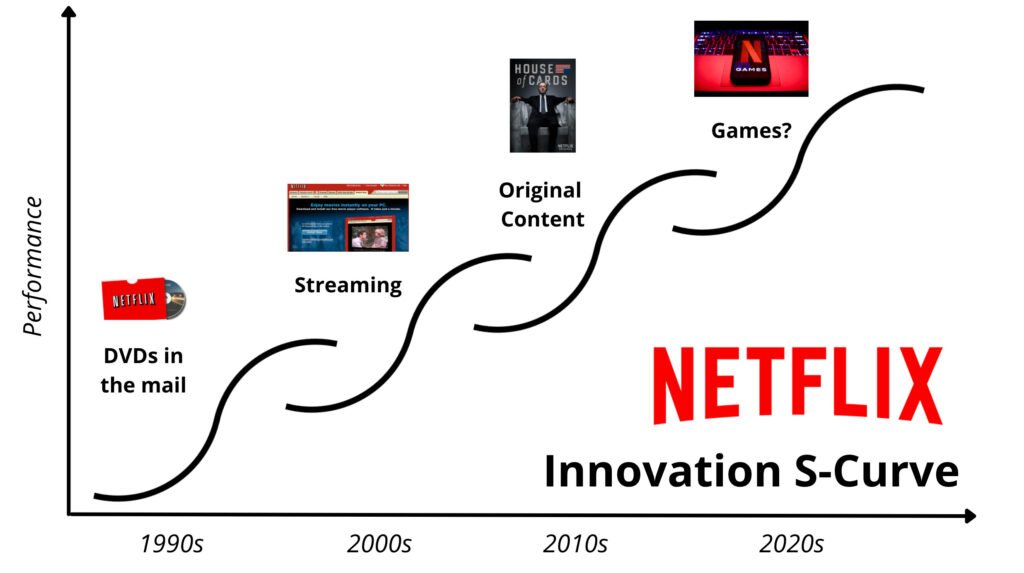Introduction
In today’s competitive landscape, the phrase “innovate or perish” has never been more relevant. Innovation drives the growth of successful businesses, allowing them to evolve with changing market demands and maintain a competitive edge. Companies that prioritize innovation are better positioned to enhance efficiency, capture new markets, and deliver greater value to their customers. On the other hand, those that fail to adapt risk falling behind, losing relevance, and eventually being edged out by competitors who embrace change.
At Grandir Capital, we understand that innovation isn’t just about having a breakthrough idea; it’s about strategically implementing change that aligns with business objectives and drives sustainable growth. Innovation requires a strategic approach that addresses industry dynamics, operational efficiency, and the evolving needs of customers. Our team at Grandir Capital is dedicated to helping businesses not only recognize their innovative potential but also realize it in ways that foster longevity and resilience. Through our consulting services, we guide companies to integrate innovation at every level—from daily processes to overarching strategies—helping them stay relevant and thrive in an ever-evolving market.

Defining Innovation
Innovation is often perceived as inventing something entirely new, but it encompasses much more than invention. In a business context, innovation involves implementing new ideas, processes, products, or services that create added value. This value can take various forms: reducing operational costs, improving customer satisfaction, or even transforming the way entire industries operate.
Innovation can be classified into different forms, each serving a unique purpose. Incremental innovation refers to small, continuous improvements on existing products, services, or processes. Though less groundbreaking, these innovations can significantly enhance efficiency and customer satisfaction over time. Disruptive innovation is more transformative, introducing entirely new solutions that fundamentally change how consumers or businesses operate. By shaking up established norms, disruptive innovations create new markets and, often, redefine entire industries.
For some organizations, incremental innovation can streamline processes and reduce costs, fostering long-term stability. For others, disruptive innovation can open new revenue streams and position them as industry leaders. Regardless of the approach, our team works with clients to determine the most effective path to innovation based on their strategic goals, competitive landscape, and resource capacity. Innovation isn’t a one-size-fits-all solution; it’s a tailored approach that, when executed thoughtfully, drives real results and positions businesses for future success.
Types of Innovation
Understanding the different types of innovation can help businesses identify opportunities that best suit their needs and objectives. Below, we explore four major types of innovation: product, process, organizational, and marketing innovation.
- Product Innovation: Product innovation involves creating new products or improving existing ones to better serve customers. For instance, Apple’s release of the iPhone revolutionized the mobile phone industry by combining advanced technology with user-friendly design. This type of innovation focuses on delivering more value to customers through improved functionality, quality, or experience.
- Process Innovation: Process innovation is about enhancing the methods used to produce goods or deliver services. Toyota, for example, pioneered process innovation with its Lean Manufacturing system, optimizing efficiency and reducing waste across production lines.
- Organizational Innovation: This type of innovation refers to changes in an organization’s structure or business practices. For example, companies like Google have adopted flexible organizational models that encourage collaboration and creativity, fostering an environment where innovation can thrive.
- Marketing Innovation: Marketing innovation involves creating new strategies for promoting products or reaching customers. An example is Coca-Cola’s personalized bottle campaign, which increased customer engagement by allowing customers to find their names on products.
Each type of innovation offers unique benefits, and Grandir Capital’s consulting services are designed to help businesses leverage these opportunities to achieve strategic growth. Curious to know where your business stands on the path to innovation? Download our free Innovation Readiness Assessment to evaluate your company’s strengths and areas for improvement. This assessment will help you understand how prepared your organization is to innovate effectively and uncover the steps you can take to advance further.
A case for Innovation

Innovation is the driving force behind some of the most successful companies today. Take, for instance, Netflix, which started as a DVD rental service and later transformed the entertainment industry by introducing video streaming. This shift from physical rentals to digital streaming enabled Netflix to reach a wider audience, adapt to changing consumer preferences, and become a leader in the industry.
Another powerful example is Amazon’s innovation in logistics and distribution. By pioneering solutions like one-click ordering, personalized recommendations, and Prime’s two-day shipping, Amazon continuously adapts to meet customer demands and improve convenience. Amazon’s innovations in its supply chain management have set a high standard for the industry, proving that process innovation can create unmatched value for customers.
Tesla represents another case of innovation at its core, particularly with its electric vehicles and commitment to sustainable energy. Tesla’s disruption of the automotive market showcases how a company can not only innovate a product but also change perceptions and build a movement around sustainability.
Grandir Capital’s Role in Innovation
At Grandir Capital, we believe that innovation is the foundation for sustainable growth and success. However, identifying and implementing innovation requires a deep understanding of both industry trends and an organization’s unique dynamics. Through our consulting services, we guide businesses in creating tailored innovation strategies that align with their goals and resources.
Our approach to innovation starts with strategic planning. We work closely with clients to assess their current market position, review internal capabilities, and identify potential growth areas. From there, we collaborate on developing a clear, actionable roadmap that prioritizes innovation aligned with their objectives. Whether it’s product development, process enhancement, or organizational change, our team provides insights and recommendations to support impactful innovation.
Grandir Capital also places a strong emphasis on market analysis and customer insights. Understanding what customers value and how the market is evolving is crucial for identifying meaningful innovation opportunities. We conduct thorough research and analysis, helping clients anticipate changes, spot emerging trends, and position their offerings accordingly. This approach ensures that our clients not only keep up with the competition but also set new standards within their industries.
Finally, our change management expertise supports clients in implementing innovation smoothly and sustainably. We recognize that innovation often requires organizational shifts, new processes, or even cultural changes, which can be challenging. Grandir Capital provides clients with the guidance they need to navigate these transitions, ensuring buy-in from key stakeholders and creating a foundation for ongoing innovation.
Once your innovation initiatives are in motion, tracking progress is key to ensuring success. Our Innovation Metrics Scorecard is a free, downloadable tool designed to help you measure and evaluate the effectiveness of your innovation efforts. From tracking new product development timelines to assessing ROI on innovation projects, this scorecard provides the structure you need to gauge your impact over time.
Conclusion
Innovation is more than a buzzword—it’s a necessary component of any successful business strategy. To help you on your innovation journey, we’re offering two free resources: our Innovation Readiness Assessment and Innovation Metrics Scorecard. These tools are designed to guide you in assessing your innovation potential and tracking your progress over time. Download them today to take the first steps toward impactful, sustainable innovation. And when you’re ready for a deeper dive, the team at Grandir Capital is here to support you every step of the way.
